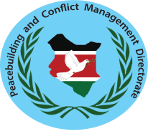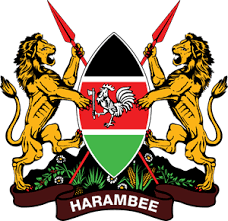Conflict Analysis & Early Warning
INTRODUCTION
Effective early warning systems have been widely recognized as worthwhile and necessary investments and, coupled with early response and better preparedness; they help in increasing stability as well as mitigating conflict. The post election violence (PEV) that gripped Kenya in late 2007 and early 2008 cast a dark shadow in the country and has amplified the urgency in developing a harmonized conflict early warning mechanism. The National Steering Committee on Peace Building and Conflict Management was established with the aid of UNDP-Kenya to harmonize and coordinate the various peace mechanisms in Kenya. One of the major charters in the formation of the committee was the development of an Early Warning mechanism in order to facilitate Early Response to mitigate potential conflict within the country.
The framework of the proposed Conflict Early Warning System (CEWS), applies the use of technology, Geographic Information Systems (GIS) technology, Short Message Service (SMS) as well as other sources to cross check information. The cross referencing of information from various sources ensures credibility to the system. The system will make use of the current District Peace Committees (DPCs), Peace Monitors and other relevant parties to gather crucial information from the field. Once information is gathered from various sources on the field, an analysis group will be able to analyze the information and be able to issue an indicator based Early Warning Report to the relevant parties. The further details of the framework are indicated in this document.
What is NCEWERS?
The National Conflict Early Warning and Early Response System is a proactive conflict prevention strategy launched in late November 2010, it is a critical part in efforts geared towards conflict prevention initiatives in Kenya.
What it does
The system gathers information from the public domain through crowd sourcing (sms 108) and peace structures (cluster coordinators, peace committee members), which is analysed and disseminated to the appropriate respondent agencies for rapid action. It is used to forecast and prevent violence at the community and national level. Notably, it was very instrumental in peacefully transitioning the 2010 referendum, and the 2013 general elections through the UWIANO Platform for Peace. It has also been key in picking up the community level conflicts and advising on formulation of sustainable interventions.
Exchange Visits
The system which is a domestication of the IGAD-CEWARN mechanism has been a learning resource to peace practitioners within and outside the country, being touted as a best practice in the region. This has led to the NSC hosting high level delegations from Ethiopia, Malawi, Zimbabwe, Nigeria, Ghana, Uganda, the East Africa Community, Uganda, South Sudan, among others. Key among the learning points has been the collaboration between the state and non-state actors, and integration of technology into the NCEWERS system.
Contacts
14TH FLOOR, BRUCE HOUSE
STANDARD STREET
P.O. BOX 30510, 00100
NAIROBI, KENYA
[email protected]
WhatsApp: +254 (0) 773 111507
Telephone: +254-20-343462/8 or 343514/39


